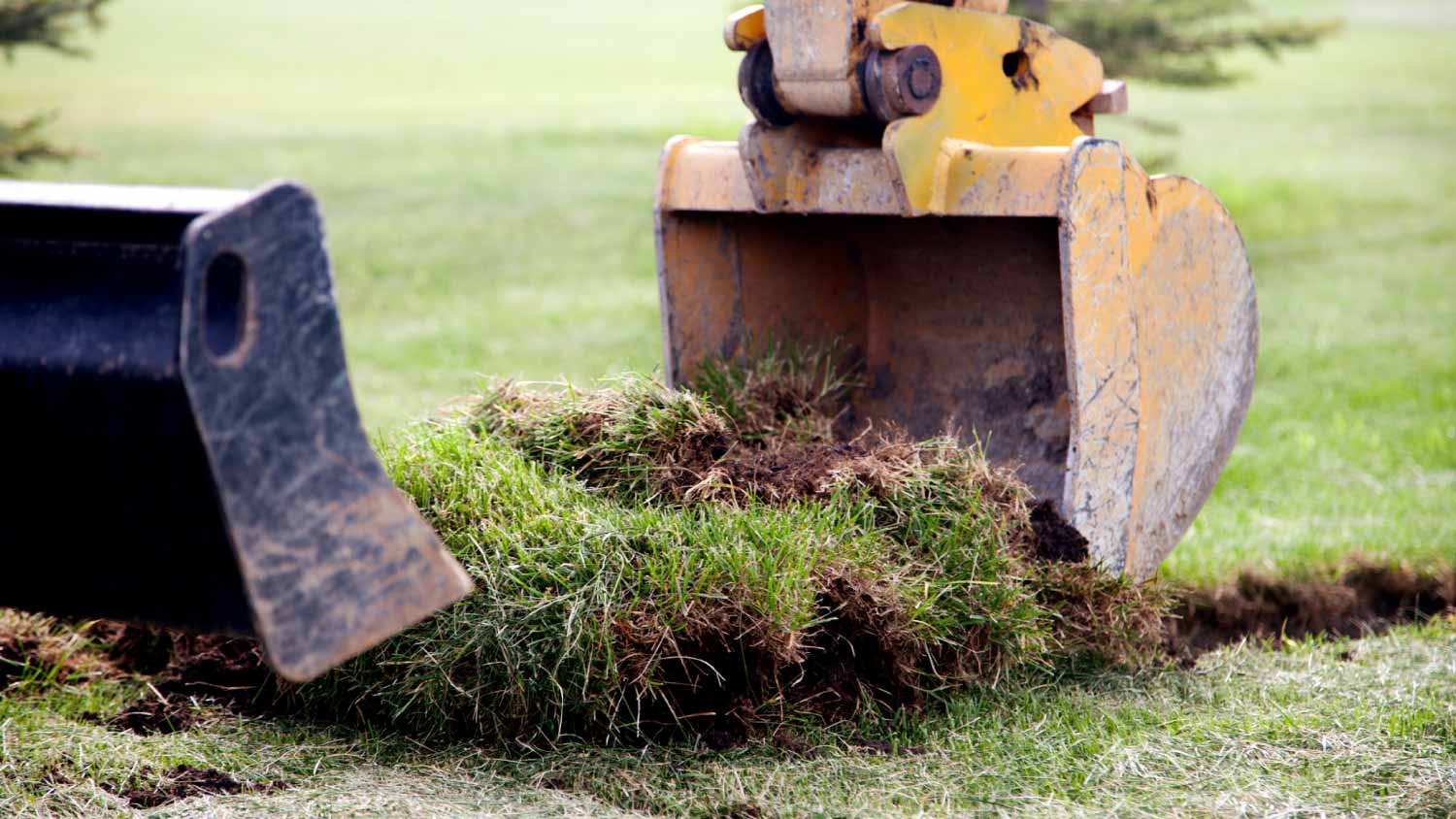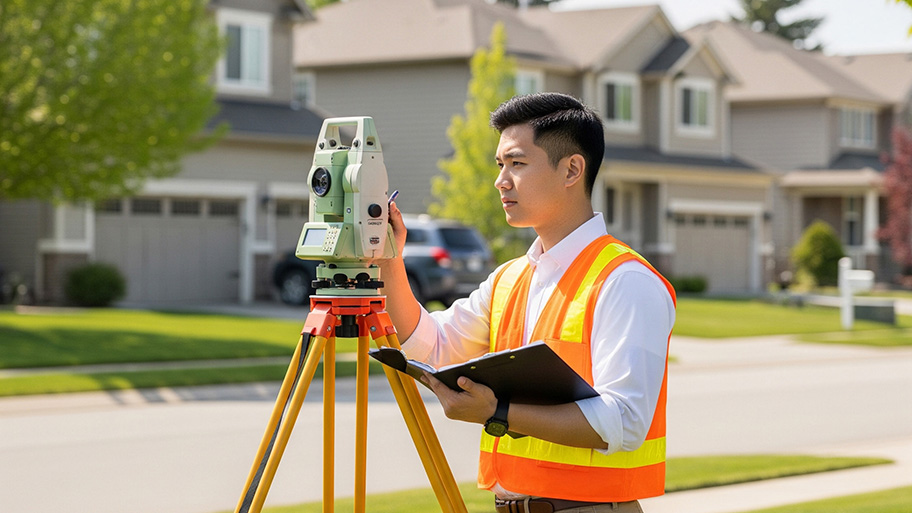
Just bought a plot of land and need to get it build-ready? Learn how much it costs to clear land to gauge your initial budget before you break ground.
Get to know your property and everything that falls inside the lines


A land survey analyzes and maps out the features of a property.
Mortgage lenders may require home sellers to supply a land survey during a sale.
Land surveys clarify the boundaries of a lawn to avoid legal complications.
There are many types of land surveys that hone in on specific details.
Whether you're installing a white-picket fence or buying a new property, land surveys will become your best friend. There are many types of land surveys to consider—from mortgage to topographic options—but what is a land survey exactly? Here's what to know, including the cost of a land survey, the reasons to get one, and whether you need to call a local land survey team.
A land survey is a detailed, aerial view drawing or diagram that clearly shows your property lines complete with measurements. It also describes the land features and other structures on the property.
Depending on your budget and the requirements for the project, you can pay a property surveyor for more detailed renderings that include photographs, previous property changes or improvements, the presence of utilities, and any location-specific issues like a floodplain or sinkhole.
The extent of the land rendering will depend on the type of land survey you choose.

You need a land survey to prevent future problems, or at least to let you know of potential issues. Land surveys reveal current and future issues associated with the property.
Here are five reasons residential land surveys are crucial for buyers.
When building a new addition (garage, driveway, home, deck, patio), you’ll need to make sure you’re building on your own land or risk the financial loss of a teardown and rebuild.
If a fence lies between you and your neighbor’s house, you may want to figure out who owns a shared fence. If it falls on their property, they are responsible for all maintenance, and if it falls directly on the property line, you share those costs with your neighbor. You will need an accurate survey for your fence line, or it could cost more in the long run. The same is true for tree and shrub lines.
The last thing you want is to end up in a boundary dispute with your neighbor. Having a land survey readily available can prevent the need for legal proceedings and preserve your relationship.
Your neighbor might have any of the above built on your potential property or may try to build in the future. Having a residential survey done protects you from these potential issues.
Property surveys also offer peace of mind as you plan for future projects, like a fence, home addition, or a deck. No homeowner wants to find out they’ve built on their neighbor’s land and they’d like it removed now, please.
Hiring a land surveyor is also a good idea if you’re considering dividing and selling your land in the future. They’ll know local laws that will affect your plans. They might even help you go through the process of seeking approval during city or county meetings.
In most states, you cannot submit a DIY survey as an official document, such as mortgage paperwork or before new construction. However, you can perform a survey for your own curiosity–or to confirm your property lines–before you build a fence or move a tree, for example. Keep in mind that this will require you to read a land plot and do a good deal of measuring. If there are legal debates on the line, it is always best to contact a local surveyor.

The average cost of a land survey is $500, which is a bargain compared to what you could pay to fix property line errors in the future. Of course, the total depends on the property's history, size, location, and unique features. Keep in mind that you will also pay an average of $1,600 for the cost of a building permit once you have the project approved by the surveyor.
Ask your surveyor if they provide a free estimate for the property. But for reference, a historic farmhouse on a large property unfamiliar to the surveyor costs much more than a new construction home in a new subdivision with easily accessible records.
Also, note that a paid residential land survey could be part of your overall property buying negotiations, but it isn’t required to seal the deal.
From average costs to expert advice, get all the answers you need to get your job done.

Just bought a plot of land and need to get it build-ready? Learn how much it costs to clear land to gauge your initial budget before you break ground.

Discover site preparation cost estimates, including average prices, cost factors, and tips to help homeowners budget for their next project.

A land survey can determine your property’s borders and settle property disputes. Learn how much a land survey costs and what can affect the price.

What is a property line? Find out everything you need to know about property lines, from easements to where to build a fence and how land surveys work.

Land surveys provide an accurate record of your property. Learn how long a land survey is good for and when you should have your property resurveyed.

Knowing where your property lines are can help settle a dispute with a neighbor and even prevent an ugly legal battle. This guide will help you draw the line.